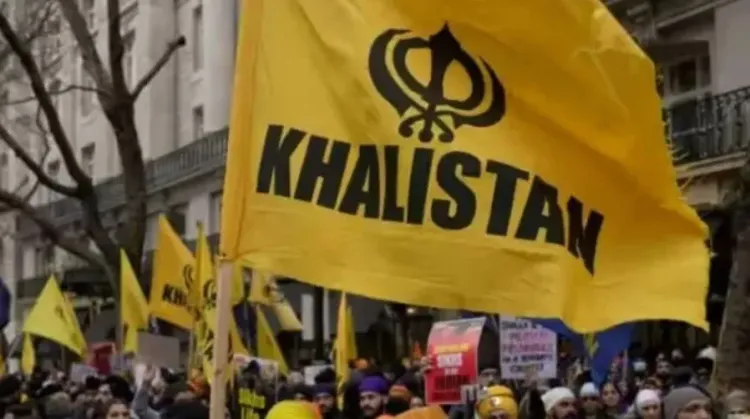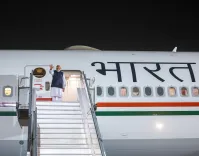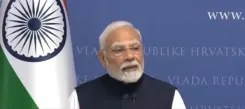Are Khalistani Extremists Exploiting Canada for 'Anti-India' Activities?

Synopsis
Key Takeaways
- Khalistani extremists are using Canada as a base for anti-India activities.
- CSIS officially acknowledged the term 'extremism' in relation to Khalistani groups.
- The ongoing threat of politically motivated violent extremism remains a concern.
- Canada is investigating the murder of Hardeep Singh Nijjar.
- New Delhi and Ottawa are working towards mending diplomatic ties.
Ottawa, June 19 (NationPress) The Canadian Security Intelligence Service (CSIS), Canada's premier intelligence agency, has publicly acknowledged for the first time that Khalistani extremists are utilizing Canadian territory as a platform for promoting, fundraising, and orchestrating acts of violence aimed primarily at India.
The agency's latest report explicitly states: "Khalistani extremists continue to use Canada as a base for the promotion, fundraising or planning of violence primarily in India."
This announcement, part of CSIS's annual report, has reignited fears regarding foreign interference and extremist activities within Canada, especially given the delicate diplomatic ties with India.
For several years, India has expressed concerns over Khalistani extremists operating from Canadian soil, but Canada has largely overlooked these issues.
Now, Canada's intelligence has corroborated what New Delhi has asserted for a long time — Canada has effectively become a sanctuary for anti-India elements.
Significantly, this is the first instance where the term "extremism" has been officially referenced by Canada in connection with Khalistani groups.
Since the mid-1980s, the threat of politically motivated violent extremism (PMVE) in Canada has predominantly emerged through Khalistani extremists seeking to utilize and support violent actions to establish an independent nation-state known as Khalistan, primarily within the Punjab region of India.
PMVE promotes the utilization of violence to create new political frameworks or norms within existing systems. PMVE actors engage in the planning, financing, and facilitating of attacks globally to establish new political entities.
While there were no incidents related to Khalistani extremists in Canada in 2024, their ongoing involvement in violent activities remains a national security concern for Canada and its interests.
CSIS is responsible for investigating activities that fall under the definition of threats to Canada's security as outlined in the CSIS Act.
In a related report, CSIS and the National Security and Intelligence Committee of Parliamentarians (NSICOP) have raised alarms regarding Pakistan's role in foreign interference within Canada. A May 2024 initial report from the Public Inquiry into Foreign Interference (PIFI) and NSICOP's June 2024 Special Report both identified Pakistan as a state actor attempting to influence Canada's democratic institutions.
There is a longstanding history of India arguing that Canada serves as a sanctuary for anti-India activities, with the separatist Khalistan movement being a central concern, particularly following the 1985 Air India bombing and subsequent terrorist activities in India.
The Canadian government has continued its investigation into the 2023 murder of Canadian citizen Hardeep Singh Nijjar as of 2024.
In May 2024, four individuals were apprehended in connection with Nijjar's murder and have been charged with first-degree murder and conspiracy to commit murder.
These revelations from CSIS coincide with the first in-person meeting between Indian Prime Minister Narendra Modi and Canadian Prime Minister Mark Carney at the G7 summit in Canada. Their meeting represents a crucial step toward repairing the strained diplomatic relations that have deteriorated following the murder of pro-Khalistan separatist Hardeep Singh Nijjar in British Columbia in 2023.
Official statements indicate that both leaders consented to appoint new High Commissioners and revive long-stalled trade discussions. The talks, held on the sidelines of the G7 summit, underscored a commitment to a "constructive and balanced partnership grounded in mutual respect for concerns and sensitivities," according to New Delhi's statement.





